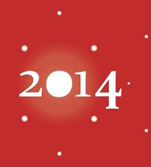 Forty-five students attended the IUCr-UNESCO OpenLab Turkey, organized in partnership with Agilent Technologies. The workshop took place at the Dokuz Eylül University at İzmir in Turkey. It focused on single-crystal structure determination by X-ray diffraction and aimed to cover all steps from mounting the crystal to reporting the results. The programme consisted of lectures and practical sessions; the lectures dealt with crystal symmetry, X-ray diffraction from a crystal, phase problem, structure solution and refinement.
Forty-five students attended the IUCr-UNESCO OpenLab Turkey, organized in partnership with Agilent Technologies. The workshop took place at the Dokuz Eylül University at İzmir in Turkey. It focused on single-crystal structure determination by X-ray diffraction and aimed to cover all steps from mounting the crystal to reporting the results. The programme consisted of lectures and practical sessions; the lectures dealt with crystal symmetry, X-ray diffraction from a crystal, phase problem, structure solution and refinement.
Agilent-IYCr2014 OpenLab Turkey, İzmir, September 2014
![[poster]](https://www.iycr2014.org/__data/assets/image/0013/100615/OpenLabTurkey.jpg) Following the United Nations declaration of 2014 as the International Year of Crystallography (IYCr2014), UNESCO and the IUCr have been planning scientific and public engagement events intended to increase the popularity and understanding of crystallography. The crystallography group in Dokuz Eylül University, being conscious that crystallographic teaching needs to educate students in the practical aspects of different areas of crystallography, organized an OpenLab meeting in partnership with IUCr, UNESCO and Agilent Technologies.
Following the United Nations declaration of 2014 as the International Year of Crystallography (IYCr2014), UNESCO and the IUCr have been planning scientific and public engagement events intended to increase the popularity and understanding of crystallography. The crystallography group in Dokuz Eylül University, being conscious that crystallographic teaching needs to educate students in the practical aspects of different areas of crystallography, organized an OpenLab meeting in partnership with IUCr, UNESCO and Agilent Technologies.
The IUCr-UNESCO OpenLab Turkey attracted about 56 applicants who were students, researchers and even some faculty from countries with close historical contacts with Turkey. The 45 selected delegates included post-docs, recent MSc and PhD graduate students, MSc students and one professor.
The scheduled dates of the courses in OpenLab Turkey were from September 1th to 5th, 2014. Over the first four days of the workshop, fundamental aspects of a crystallographic investigation were presented in 11 lectures and 9 practice sessions. The international team of lecturers and instructors was composed of:
- Dinçer Ülkü (DÜ), Hacettepe University, Turkey;
- Ahmet Erdönmez (AE), Ondokuz Mayıs University, Turkey;
- Engin Kendi (EK), Hacettepe University, Turkey (former president of the Turkish Crystallographic Association);
- Orhan Büyükgüngör (OB), Ondokuz Mayıs University, Turkey (a Co-editor of Acta Crystallographica Section E);
- Daniel Baker (DB), Agilent Technologies;
- Horst Puschmann (HP), OlexSys Ltd;
- Stephen Astley (SA), Ege University, Turkey;
- Hasan Karabıyık (HK), Dokuz Eylül University, Turkey;
- Radek Kuzel, Charles University Prague, Czech Republic (a member of the IUCr Executive Committee).
Details of the Scientific Programme and the presentations of the meeting are available at http://iycropenlabturkey.org/.
The topics were carefully selected to cover the main aspects of crystallographic research and were aimed at enabling each participant to independently solve and interpret the structure and to prepare a CIF file for publication. In the first two days, mostly intended to learn the fundamentals of crystallography, the main theoretical and practical characteristics of small-molecule single-crystal X-ray crystallography were covered. The principles underlying X-ray diffraction (AE), structure solution techniques (EK), data collection and reduction strategies (DB), structure determination on OlexSys (HP), and an introduction to supramolecular interactions (SA) were covered. The sessions in the subsequent two days concentrated on the applications of the principles given in the first two days. While doing these, structure refinement and details of reporting a structure (OB) were also taught, and the participants were informed about the Cambridge Structural Database and its applications (HK). The scientific programme of OpenLab Turkey was accomplished by an impressive and pleasurable presentation by Radek Kuzel.
During the meeting, the attendees took an opportunity to collect diffraction data of their own crystals and to prepare their structure reports in a computer laboratory. The final session, including a short oral exam, was organized to assess the level of understanding of the participants. In this session, succinctly prepared final structure reports were presented by participants in the morning of the last day of OpenLab Turkey. The success rate was highly encouraging. Certificates were awarded to the participants by General Coordinator of OpenLab Turkey, Muhittin Aygün, IUCr Executive Committee member, Radek Kuzel. The closing ceremony of the OpenLab Turkey was held on September 5 in the holiday resort of Dokuz Eylül University, enabling participants and lecturers to enjoy a good time together.
The successful development of the OpenLab Turkey was possible thanks to the full commitment of the lecturers, instructors and attendees and the financial support provided by the IUCr, Agilent Technologies, Turkish Atomic Energy Authority, Dokuz Eylül University and the Turkish Crystallographic Association.
 |
 |
 |
 |
 |


